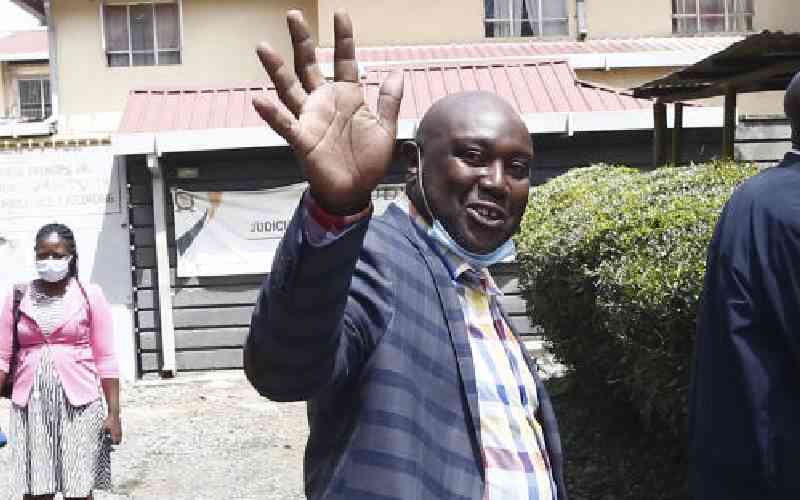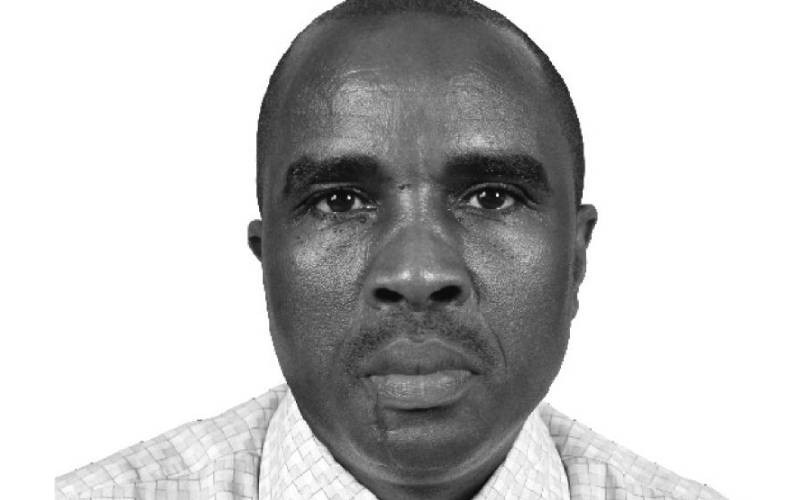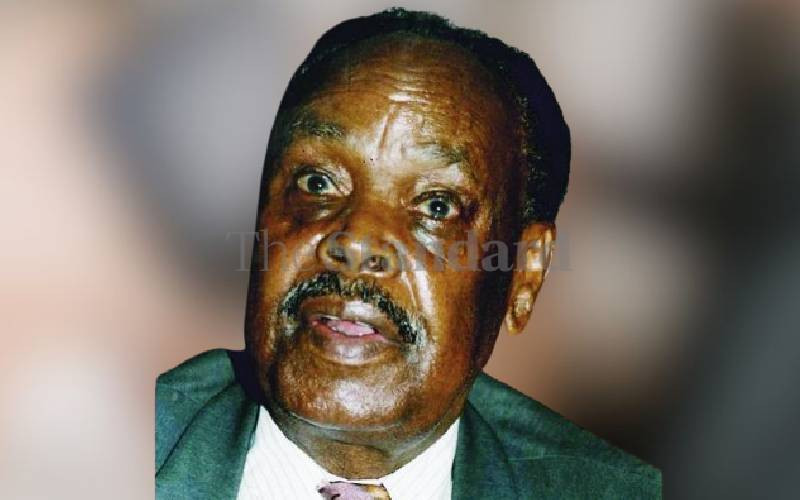NAIROBI: The guilty verdict and sentencing of Joshua Waiganjo to a five-year jail term by a Naivasha court provides only the tip of the iceberg. There is more than meets the eye in the police imposter’s saga and the National Police Service Commission should go beyond the court action and carry out a thorough audit of the police service.
Mr Waiganjo came to public limelight in 2013 following his arrest in Naivasha for impersonating a police officer. And while he retains the right to appeal, his jailing raises more questions than answers. It speaks of a police service without effective structures and controls. Did the man who Mr Waiganjo deputised know his true identity? Mr Waiganjo could not simply have presented himself to the Rift Valley Provincial Police Officer as his deputy without an official posting letter from police headquarters in Nairobi. Who, then, at Vigilance House knew about Mr Waiganjo, but kept quiet about it?
What was the motive behind having him in the police force and at such a high level? Was it beyond the scope of the Directorate of Criminal Investigations to unearth Mr Waiganjo given that he attended security meetings as the deputy PPO? Given the number of years Mr Waiganjo masqueraded as the deputy Provincial Police Officer for Rift Valley, the meetings he attended and the functions he coordinated, it is hard to believe a civilian could impersonate an officer that long without being detected. This points to an intricate scheme whose motive is not yet known.
In the period before his arrest, Mr Waiganjo is said to have had the authority to discipline junior officers, take them on transfers and during the burial of a former vice president, the late Kijana Wamalwa, a function that retired President Mwai Kibaki attended, he was in charge of transport. The danger that such carelessness could pose to the safety of dignitaries at such functions is best left to imagination. But all said and done, the credibility of the police is badly dented.
It says a lot about the authority and power of the police uniform that citizens get nervous in the presence of police. Many have been conned by people posing as police officers and lost both money and property. Last year the Independent Police Oversight Authority (IPOA) decried the presence of rogue policemen. Over time we have witnessed an increase in crime that involves uniformed policemen; from rape cases, pick-pocketing in matatu’s and buses, extortion, killings to highway robbery. What this simply points to is that there are many Waiganjos out there, not only in the police service but also other key areas of Government. Therefore, there is urgent need to weed them out.
Most importantly, those who colluded with Waiganjo must be sought out and punished. It is quite possible that sensitive police and security information was shared with the wrong people; something that could account for why criminals have found it easy to operate in some areas of our jurisdiction without fear of arrest.
Laws passed in 2011 contain an ambitious framework for police reform, which, if fully implemented, would overhaul the force structure and address shortcomings that permit and perpetuate impunity in the service. They also set new standards of conduct for the police but the evident lack of political goodwill to fully implement the reform agenda fly in the face of any noble efforts to straighten out the police service. In the end, the test of police efficiency is the absence of crime and disorder, not the visible evidence of police action in dealing with it.
 The Standard Group Plc is a
multi-media organization with investments in media platforms spanning newspaper
print operations, television, radio broadcasting, digital and online services. The
Standard Group is recognized as a leading multi-media house in Kenya with a key
influence in matters of national and international interest.
The Standard Group Plc is a
multi-media organization with investments in media platforms spanning newspaper
print operations, television, radio broadcasting, digital and online services. The
Standard Group is recognized as a leading multi-media house in Kenya with a key
influence in matters of national and international interest.
 The Standard Group Plc is a
multi-media organization with investments in media platforms spanning newspaper
print operations, television, radio broadcasting, digital and online services. The
Standard Group is recognized as a leading multi-media house in Kenya with a key
influence in matters of national and international interest.
The Standard Group Plc is a
multi-media organization with investments in media platforms spanning newspaper
print operations, television, radio broadcasting, digital and online services. The
Standard Group is recognized as a leading multi-media house in Kenya with a key
influence in matters of national and international interest.








